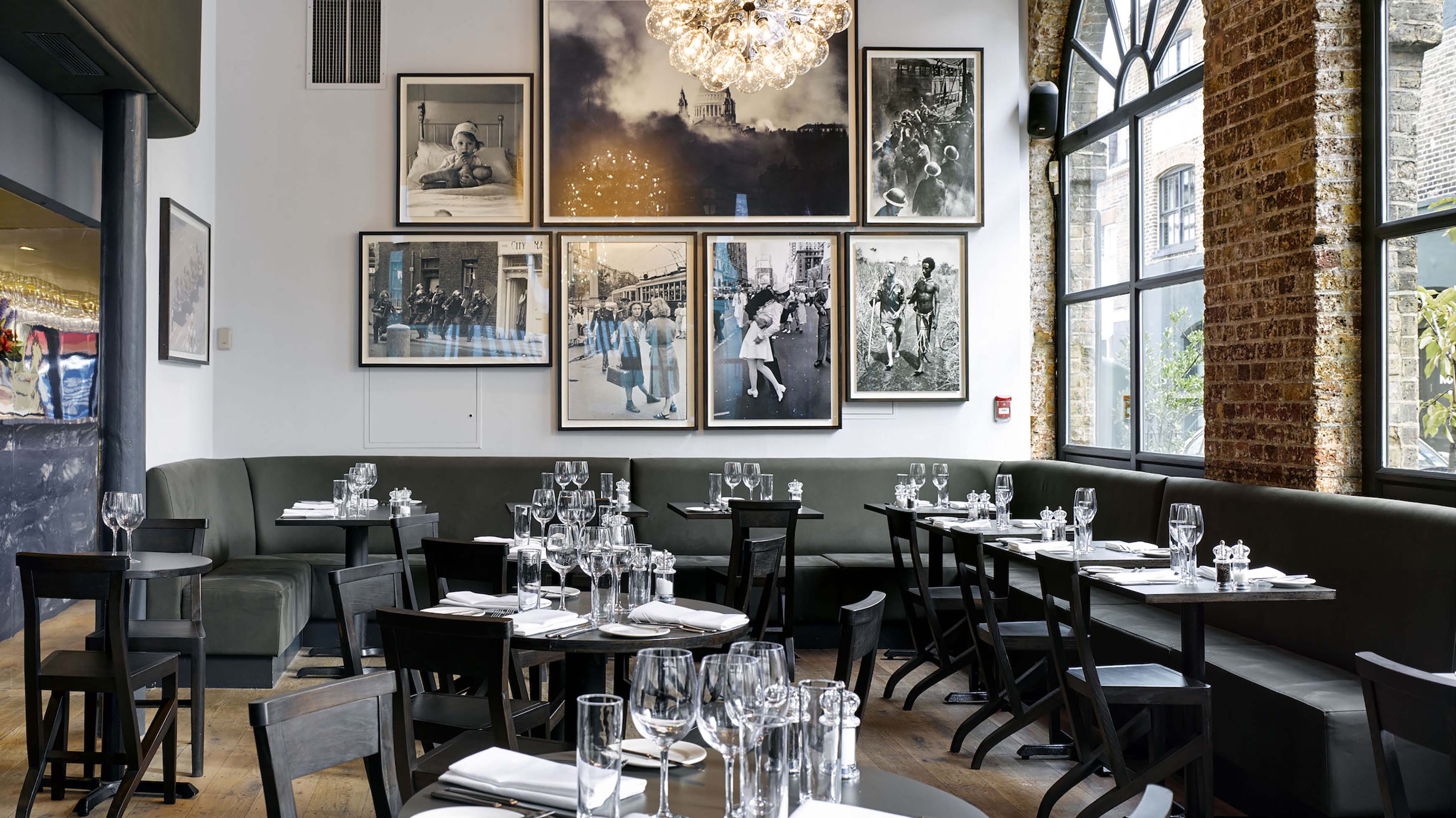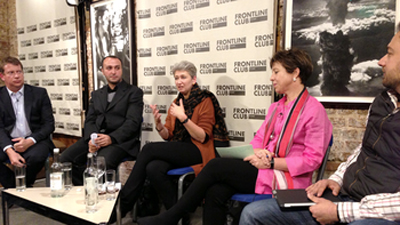FIRST WEDNESDAY SPECIAL: Changing world – conflict, culture and terrorism in the 21st century
EXTERNAL EVENT HELD AT THE ROYAL INSTITUTION OF GREAT BRITAIN.
To mark ten years since the terrorists attacks on the United States, the Frontline Club is holding a special event to look at the extent to which 9/11 has defined our world today and will continue to shape our future.
We will be looking at the “War on Terror” that followed and the impact of the rhetoric, and the reality of a global battle cast in terms of “good vs. evil”: Is it a war that can be won? What has been the impact on a world that is increasingly interconnected?
We will take stock of the seismic events the world has witnessed – from wars waged in Iraq and Afghanistan to terrorists attacks from London to Mumbai and uprisings across the Middle East and North Africa.
Our panel will also try to make sense of other changes that have taken place – from increased surveillance to extraordinary rendition – and examine how the narrative employed by governments, leaders and the media shaped public attitudes.
Join us for a special event with a panel of experts to examine the world today and how the events of 10 years ago have shaped it and will continue to do so.
Chaired by Paddy O’Connell of BBC Radio 4’s Broadcasting House who was living and working in New York on 9/11 and anchored the New York end of the special programme that night for BBC One.
Twitter: @paddy_o_c
With:
Isabel Hilton, international journalist and broadcaster and editor of chinadialogue.net. She began her career in journalism with Scottish Television, then worked for the Daily Express and the Sunday Times before joining the launch team for The Independent in 1986. In 1992 she became a presenter of the BBC’s flagship news programme, The World Tonight and a columnist for The Guardian. In 1999 she joined the New Yorker as a staff writer. Her work has appeared in the Financial Times, the New York Times, the Los Angeles Times, Granta, the New Statesman, El Pais, Index on Censorship and many other publications. She has reported from China, Latin America, Africa, South Asia, the Middle East and Europe and has written and presented several documentaries for BBC television. Since 2001 she has been a presenter of the BBC Radio Three’s cultural programme, Night Waves. She has authored and co-authored several books and holds honorary doctorates from Bradford and Stirling Universities. She was appointed OBE in 2010 for her contribution to raising environmental awareness in China.
Twitter: @isabelhilton
Mehdi Hasan, senior editor (politics) at the New Statesman and a former news and current affairs editor at Channel 4. He is co-author of Ed: the Milibands and the Making of a Labour Leader and author of the new ebook The Debt Delusion. His blog is here.
Twitter: @ns_mehdihasan
Carne Ross, a former British diplomat, author and journalist. Having resigned from the British foreign service after giving secret testimony to an official inquiry into the Iraq war, he then set up the world’s first independent diplomatic advisory group, Independent Diplomat, which advises marginalised countries and groups around the world. He is author of The Leaderless Revolution: How Ordinary People Will Take Power And Change Politics in the 21st Century.
Twitter: @carneross
Maajid Nawaz, co-Founder and executive director of Quilliam and Founder of Khudi, he was formerly on the UK national leadership for the global Islamist party Hizb ut-Tahrir (HT). He was involved in HT for almost 14 years and was a founding member of HT in Denmark and Pakistan and eventually served four years in an Egyptian prison as an Amnesty International ‘prisoner of conscience’. In prison, he gradually began changing his views until finally renouncing the Islamist ideology while remaining Muslim. He now engages in counter-Islamist thought-generating, social-activism, writing, debating and media appearances.
Twitter: @MaajidNawaz
Michael Goldfarb, author, journalist, broadcaster and GlobalPost’s London correspondent. For NPR and the BBC, Goldfarb has covered conflicts and conflict resolution in Northern Ireland, Bosnia, the Middle East and Latin America. He covered the war in Iraq as an unembedded reporter based in Kurdistan. His book on the conflict, Ahmad’s War, Ahmad’s Peace: Surviving Under Saddam, Dying in the New Iraq was named one of The New York Times’ Notable Books of 2005. Since September 11 2001 he has reported extensively on radical Islam from Cairo to Tehran to the streets of London. On September 11 2001 he was live on the air from 10 until noon in the US presenting part of NPR’s coverage of the event.
Twitter: @MGEmancipation
IN ASSOCIATION WITH BBC ARABIC.


